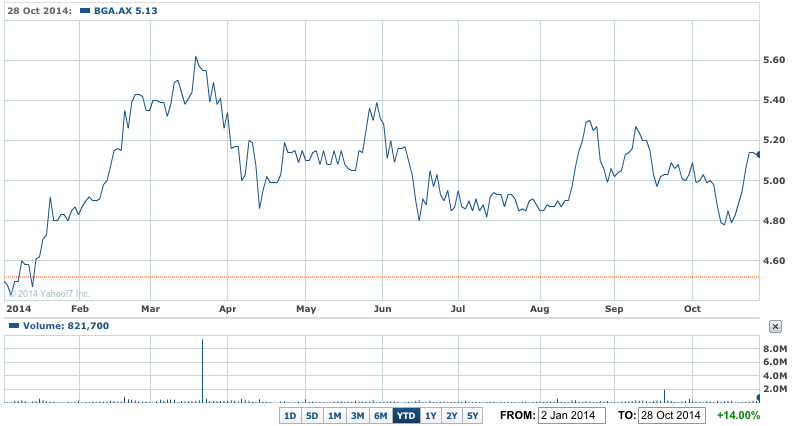The great dairy boom continues to be hit by the realities of the global market place.
The New Zealand wonder dairy story has been comprehensively punctured by a 40% slide in prices and a possible $5 billion drop in export income for the county’s dairy farmers in the next year, as we reported last month.
Now Bega Cheese (BGA), which was a player in the great Warnambool Cheese bidding madness earlier this year, has delivered a sobering warning for a flat result in 2014-15.
Executive chairman Barry Irvin says the price falls will offset improved returns from several business initiatives Bega has introduced in recent years.
“At this point in time, we believe both revenue and profit after tax for the normalised full year 2015 year will be broadly in line with the normalised full year 2014 year,” he told shareholders at Bega’s annual meeting on Tuesday.
Bega reported a net profit of $66 million for 2013-14, on revenues of $1.069 billion.
So those commentators, consultants and politicians who claim Australia should be able to emulate the NZ dairy success can think again – we are matching what’s happening across the Tasman, only not in the boom-like way that a lot of people had us believing earlier this year when the frenetic battle for control for Warnambool was in full swing.
BGA YTD – Bega confirms flat outlook

Mr Irvin said global dairy commodity prices had fallen about 45% in the past six months – a similar experience to the one revealed recently by Bega’s biggest shareholder, the giant Fonterra group of NZ.
The culprits – weaker demand in China and other Asian markets, the sanctions applied to Russia by Western countries which saw Russia impose import cuts or bans on western food exports such as dairy products from Australia and NZ, rising dairy production elsewhere such as in the US and Europe, and higher export competition. As a result, we now have falling prices on world markets for dairy products.
Mr Irvin said strong competition for milk in Australia had meant that the global downturns were partly absorbed by dairy companies rather than being reflected in farm gate milk prices.
“The current downturn and disconnect between the market and farm gate milk price need to be viewed in the context of the cyclical nature of global dairy commodities," he said.
“Our view remains that there is strong underlying demand for dairy products, particularly in Asia, there is a long-term projected shortage of supply and Australia and, more specifically, Bega Cheese is well positioned to benefit from that demand."
Mr Irvin said the parts of Bega’s business not exposed to commodity prices were growing and the company had a strong balance sheet to support expansion.
Bega shares fell to a day’s low of $4.97 yesterday morning before rebounding to end steady on $5.13.




